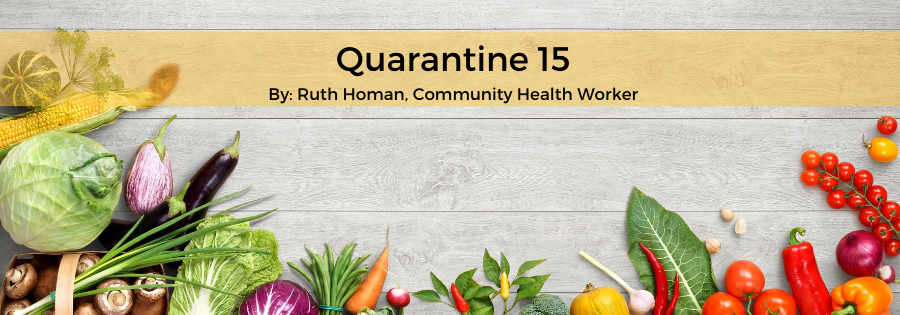By Ruth Homan, Telluride Community Health Worker
By now, many of us have experienced to a certain degree the ill effects of social distancing for multiple weeks. For most people, a few days of forced social isolation can be an opportunity to be more introspective or partake in self-care which can invoke positive responses in the brain. However, more than a few days of distancing can become a stressor, both mentally and physically. But what happens when new and different stressors start to creep in, and we have no way of relieving our stress in the ways we are used to? Many people reported gaining at least a few pounds during the COVID lockdowns. A WebMD reader poll stated that half of women and 25% of men report gaining weight during the quarantine. Activity apps reported drops in physical activity being logged, and food tracking apps reported people eating more comfort foods and processed foods. This weight gain can actually lead to more stress, as well as the health implications of increased risk of cardiovascular disease, diabetes, and high blood pressure.
Hopefully, many of us are starting to ease back into familiar routines as COVID restrictions are being lifted. It may still be a while before “normal” routines are regained, so what can we do to reclaim a foundation of healthy living? Re-design your daily routine so that you know what to expect each day; workwise and health-wise. Find ways to exercise that you may not have tried in the past, such as YouTube workouts, lunges and pushups on your balcony or virtual challenges with your friends. Instead of feeling like you should work out for 45-60 minutes, try doing smaller bouts of 10 minutes more frequently throughout the day. More frequent bouts of exercise keep sedentary times shorter, which may improve overall health. Studies suggest that sitting for more than an hour at a time may be detrimental to health, regardless of whether you get 30-60 minutes of exercise each day or not.
Healthy eating strengthens our immune system and improves our ability to handle stress. Focus on eating plenty of fruit and vegetables, lean protein sources, whole grains, and healthy fats like nuts, seeds and avocado. People who plan their meals for several days at a time tend to eat healthier and spend less on groceries. Take a few minutes at the beginning of each week to take stock of what is in your pantry and fridge. Then make a shopping list and build upon what you already have in order to make interesting and healthy meals throughout the week.
Lastly, pay attention to the mental aspect of health. The term “Social Distancing” may have associations with feelings of isolation, loneliness, or dejection. Higher than historic levels of stress, anxiety, depression, and substance abuse are now being seen in our communities. Maintain your connections with friends and family via phone calls, texting, or try a video conferencing app like Zoom. Take time to seek help if you are feeling sad, anxious, or increasing levels of stress. These mental concerns historically increase during, and growingly after, wide-scale events (such as 9-11, the Great Depression, and Hurricane Katrina).
While “Quarantine 15” was originally referencing the weight gain associated with the multiple weeks of imposed social distancing, this term, in essence, can broadly relate to many symptoms, including weight gain, increased stress levels, increased likelihood of depression, food insecurity, lack of good medical care, and household instability. On the upside, teletherapy is becoming more accepted and accessible to more people than ever before.
Please see our TCHNetwork webpage on how to access Teletherapy, health coaching with a Community Health Worker, and other services through TCHNetwork.
For more information on the information cited in this blog, please see


